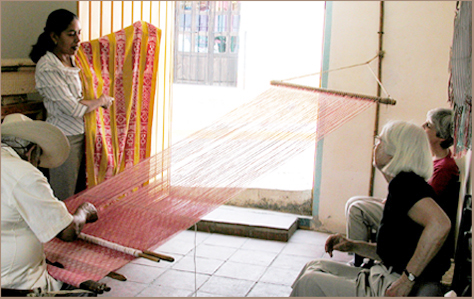
Educational exchanges
The Corner Institute's educational exchange projects grew out of our Living Museum project, organized by a group of young Malinalcans in their twenties, including some who traveled to study at universities in Toluca or Tenancingo during the week, but returned to Malinalco on weekends. Support from Malinalco's municipal government made it possible for The Corner Institute to offer university credit for the research these young people did into the still vibrant traditional ways of this rural community, many of whose inhabitants have surnames of Aztec origin and use Nahuatl vocabulary in their daily speech. While the young people have been fascinated by what they are learning from barrio elders, their parents and grandparents find it highly gratifying to see them showing this interest in their traditions.
Our educational exchange projects have brought university and other groups from New York, California, Massachusetts, Ohio, Arizona and Illinois to engage in seminars and to teach and receive workshops in a variety of disciplines, ranging from the early exchanges that brought groups to teach workshops in such crafts as bookbinding while studying Spanish with local youths, to groups engaging in seminars to gain an understanding of how migration is experienced in a Mexican hometown, to groups participating in bicultural literary and art exchange projects.
